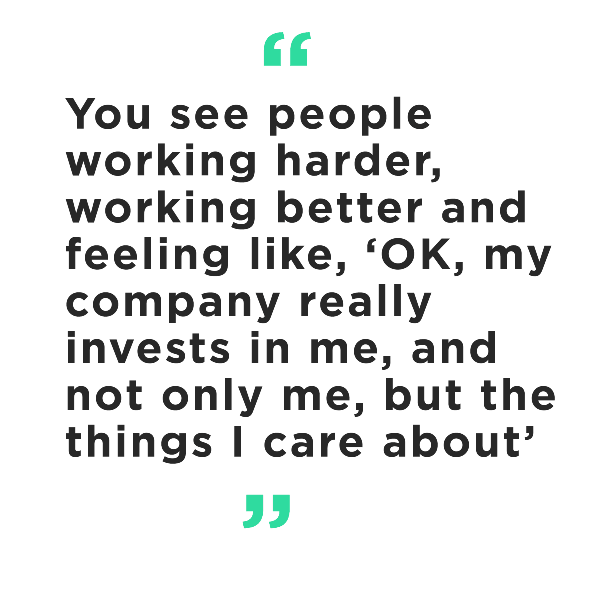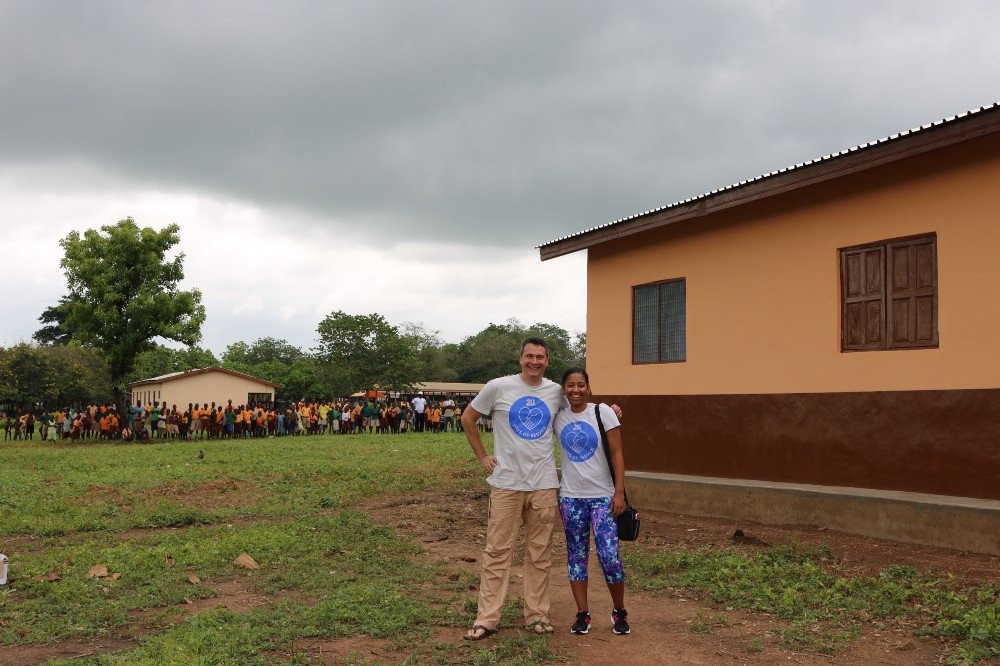Culture
The Hidden Value of Corporate Philanthropy
Written by 2U on Apr 18, 2017
Related content: Diversity And Inclusion
A competitive salary. Health benefits. A hip workspace.
These are all elements in attracting and retaining a stellar workforce. But in addition to health, prosperity and happiness, many employees crave something else in their work — they want to make their community and the world around them a better place.
Enter: corporate philanthropy.
Like individuals who give back to their neighbors in need, many modern corporations use their platform and profits to support causes near and dear to their mission and their workforce.
In 2015, corporations gave $18.45 billion in charitable donations, according to Giving USA. Notable Fortune 500 companies like Verizon, Apple, Wal-Mart, GE, Bank of America, AT&T and Alcoa are some of the most charitable year-to-year.
Apple, for instance, matches each employee’s charitable gifts up to $10,000for the year. With more than 80,000 employees, Apple has the potential to donate millions upon millions in matching charitable gifts. It also offers $25 per hour volunteered in grants to programs employees choose to give their time to.

In addition to matching employees’ personal gifts, large companies can also provide a major and unified impact by dedicating resources to a philanthropic campaign that aligns closely with their overall missions. Large tech companies support digital literacy organizations and defense contractors give to the Wounded Warrior Project, for example.
2U partners with Pencils of Promise, a nonprofit company that uses donations to build schools and provide educational opportunities to students in developing nations, as its official companywide philanthropy.
Because the mission of the philanthropy — providing better educational outcomes, no matter where the student is — matches that of 2U, it’s one that employees are passionate to get behind.
“First and foremost, we are a mission-driven company,” said Brad Adams, executive vice president of post-enrollment services with 2U. “Yes, we’re a public company, but really we’re about driving great outcomes — that great education can take place essentially anywhere using technology as a tool. I think the alignment of the cultures and the commitment to quality educational outcomes and creating access, creating opportunity, are really 100 percent aligned.”
The inherent social impact such charitable giving derives is obvious, but it also comes with the added value of a more engaged base of employees who thrive in knowing their work each day is going toward a positive outcome.

A 2011 survey from Deloitte found that employees who take part in community service or philanthropic efforts with the company indicate higher levels of engagement and satisfaction. They’re twice as likely to rate the corporate culture as a positive one, the study found, and more likely to be loyal to and proud of their company.
Candice Adderly, senior manager of communications at 2U, said that because the philanthropy ties so closely to 2U’s mission with outcomes that can be tracked from employees’ direct contributions, there is a very noticeable correlation between corporate giving and employee engagement.
“You see people working harder, working better and feeling like, ‘OK, my company really invests in me, and not only me, but the things I care about,’” Adderly said.
She added: “I think people really want to find a place in their workforce that cares about what they care about. And I think that’s why it works so well at 2U, because we really want to provide those opportunities for employees. If they care about these things, the community, we want to embrace that, and we’ve done an incredible job of embracing that across the company.”
Some 2U employees even get the chance to visit the schools the company is responsible for having helped develop with its donations in countries like Ghana and Guatemala.
Adams and Adderly both attended a trip to Ghana in 2016 to see firsthand the impact the schools were making and observe the construction one of the newest campuses.

“Universally everybody characterizes it as life-changing,” Adams said of the trip. “Truly, it is a once-in-a-lifetime, life-changing experience that you get this exposure and you see firsthand the good in the world, and you see the part your company is playing in it.”
Those leaders from the company then come back and share their stories across their teams. The passion and engagement spreads like wildfire, Adams explained.
“When you hear firsthand accounts of the outcomes related to your philanthropy, people don’t even doubt that your company cares,” he said.
“It wasn’t about things, and it wasn’t even about educational statistics,” Adams continued. “It was about Felix, the fourth grader. These types of initiatives can be so abstract, and that really brings it home and makes it real and meaningful in a pretty remarkable way.”